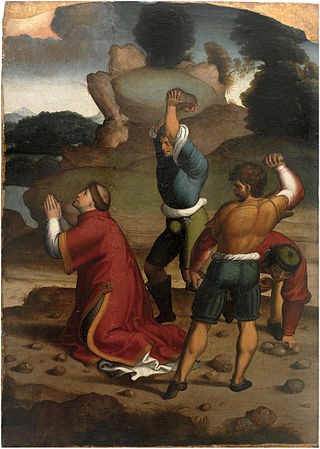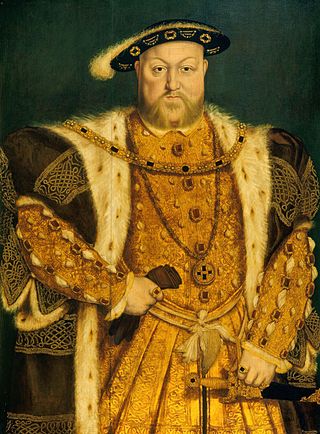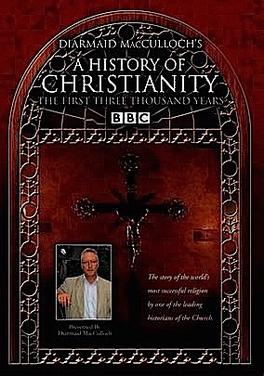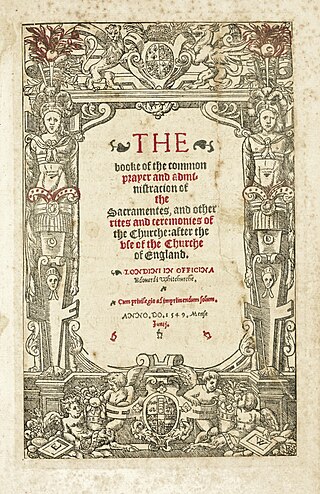
Christianity is an Abrahamic monotheistic religion based on the life and teachings of Jesus. It is the world's largest and most widespread religion with roughly 2.4 billion followers, comprising around 31.2% of the world population. Its adherents, known as Christians, are estimated to make up a majority of the population in 157 countries and territories. Christians believe that Jesus is the Son of God, whose coming as the Messiah was prophesied in the Hebrew Bible and chronicled in the New Testament.
Antisemitism and the New Testament is the discussion of how Christian views of Judaism in the New Testament have contributed to discrimination against Jewish people throughout history and in the present day.

Pauline Christianity or Pauline theology, otherwise referred to as Gentile Christianity, is the theology and form of Christianity which developed from the beliefs and doctrines espoused by the Hellenistic-Jewish Apostle Paul through his writings and those New Testament writings traditionally attributed to him. Paul's beliefs were rooted in the earliest Jewish Christianity, but they deviated from this Jewish Christianity in their emphasis on inclusion of the Gentiles into God's New Covenant and in his rejection of circumcision as an unnecessary token of upholding the Mosaic Law.

In Christianity, a martyr is a person who was or is killed for their testimony for Jesus or faith in Jesus. In years of the early church, stories depict this often occurring through death by sawing, stoning, crucifixion, burning at the stake, or other forms of torture and capital punishment. The word martyr comes from the Koine word μάρτυς, mártys, which means "witness" or "testimony".

Diarmaid Ninian John MacCulloch is an English academic and historian, specialising in ecclesiastical history and the history of Christianity. Since 1995, he has been a fellow of St Cross College, Oxford; he was formerly the senior tutor. Since 1997, he has been Professor of the History of the Church at the University of Oxford.

Paula Fredriksen is an American historian and scholar of early Christianity. She held the position of William Goodwin Aurelio Professor of Scripture at Boston University from 1990 to 2010. Now emerita, she has been distinguished visiting professor in the Department of Comparative Religion at the Hebrew University of Jerusalem, since 2009.

A History of Christianity is a 1976 study of the history of Christianity by the British historian Paul Johnson. It has since been reissued and updated. The author aims to present a comprehensive factual history of the Christian religion.
The doctrine of the Trinity, considered the core of Christian theology by Trinitarians, is the result of continuous exploration by the church of the biblical data, thrashed out in debate and treatises, eventually formulated at the First Council of Nicaea in AD 325 in a way they believe is consistent with the biblical witness, and further refined in later councils and writings. The most widely recognized Biblical foundations for the doctrine's formulation are in the Gospel of John, which possess ideas reflected in Platonism and Greek philosophy.
Martin Luther (1483–1546) was a German professor of theology, priest and seminal leader of the Reformation. His positions on Judaism continue to be controversial. These changed dramatically from his early career, where he showed concern for the plight of European Jews, to his later years, when embittered by his failure to convert them to Christianity, he became outspokenly antisemitic in his statements and writings.
The tradition of the Catholic Church claims it began with Jesus Christ and his teachings; the Catholic tradition considers that the Church is a continuation of the early Christian community established by the Disciples of Jesus. The Church considers its bishops to be the successors to Jesus's apostles and the Church's leader, the Bishop of Rome, to be the sole successor to St Peter who ministered in Rome in the first century AD after his appointment by Jesus as head of the Church. By the end of the 2nd century, bishops began congregating in regional synods to resolve doctrinal and administrative issues. Historian Eamon Duffy claims that by the 3rd century, the church at Rome might even function as a court of appeal on doctrinal issues.

The English Reformation took place in 16th-century England when the Church of England was forced by its monarchs and elites to break away from the authority of the pope and the Catholic Church. These events were part of the wider European Reformation, a religious and political movement that affected the practice of Christianity in Western and Central Europe.

Christianity in the 1st century covers the formative history of Christianity from the start of the ministry of Jesus to the death of the last of the Twelve Apostles and is thus also known as the Apostolic Age. Early Christianity developed out of the eschatological ministry of Jesus. Subsequent to Jesus' death, his earliest followers formed an apocalyptic messianic Jewish sect during the late Second Temple period of the 1st century. Initially believing that Jesus' resurrection was the start of the end time, their beliefs soon changed in the expected Second Coming of Jesus and the start of God's Kingdom at a later point in time.
Early Christianity, otherwise called the Early Church or Paleo-Christianity, describes the historical era of the Christian religion up to the First Council of Nicaea in 325. Christianity spread from the Levant, across the Roman Empire, and beyond. Originally, this progression was closely connected to already established Jewish centers in the Holy Land and the Jewish diaspora throughout the Eastern Mediterranean. The first followers of Christianity were Jews who had converted to the faith, i.e. Jewish Christians. Early Christianity contains the Apostolic Age and is followed by, and substantially overlaps with, the Patristic era.

A History of Christianity is a six-part British television series originally broadcast on BBC Four in 2009. The series was presented by the English ecclesiastical historian Diarmaid MacCulloch, Professor of the History of the Church at the University of Oxford.
Historiography of early Christianity is the study of historical writings about early Christianity, which is the period before the First Council of Nicaea in 325. Historians have used a variety of sources and methods in exploring and describing Christianity during this time.

"And Can It Be That I Should Gain?" is a Christian hymn written by Charles Wesley in 1738 to celebrate his conversion, which he regarded as having taken place on 21 May of that year. The hymn celebrates personal salvation through the death and resurrection of Jesus, and is one of the most popular Methodist hymns today.
A History of Christianity may refer to:
The idea that a common Judaeo-Christian ethics or Judeo-Christian values underpins American politics, law and morals has been part of the "American civil religion" since the 1940s. In recent years, the phrase has been associated with American conservatism, but the concept—though not always the exact phrase—has frequently featured in the rhetoric of leaders across the political spectrum, including that of Franklin D. Roosevelt and Lyndon B. Johnson.

The Ecclesiastical History Society (EHS) is a British learned historical society founded in 1961 to foster interest in, and to advance the study of, all areas of the history of the Christian Church through twice yearly conferences and publications. Founders include C. W. Dugmore of King's College London, Dom David Knowles, and W. H. C. Frend. Since then the EHS has held annual conferences based on themes suggested by successive Presidents.

The 1549 Book of Common Prayer (BCP) is the original version of the Book of Common Prayer, variations of which are still in use as the official liturgical book of the Church of England and other Anglican churches. Written during the English Reformation, the prayer book was largely the work of Thomas Cranmer, who borrowed from a large number of other sources. Evidence of Cranmer's Protestant theology can be seen throughout the book; however, the services maintain the traditional forms and sacramental language inherited from medieval Catholic liturgies. Criticised by Protestants for being too traditional, it was replaced by the significantly revised 1552 Book of Common Prayer.












